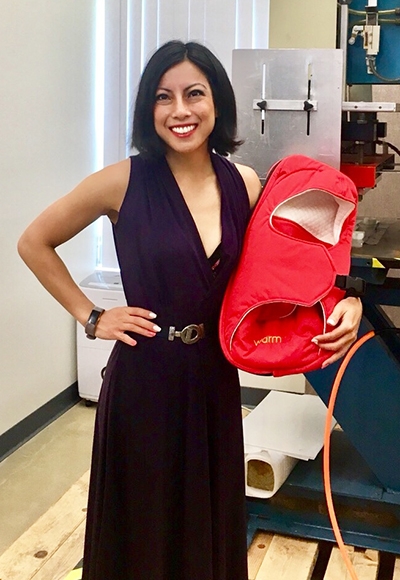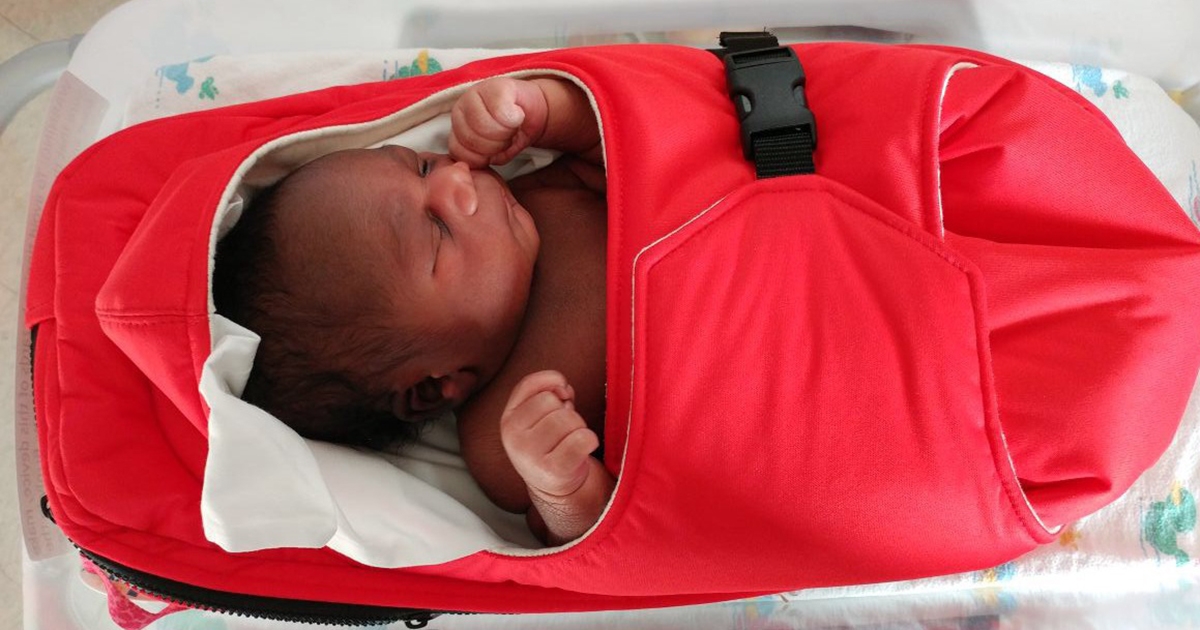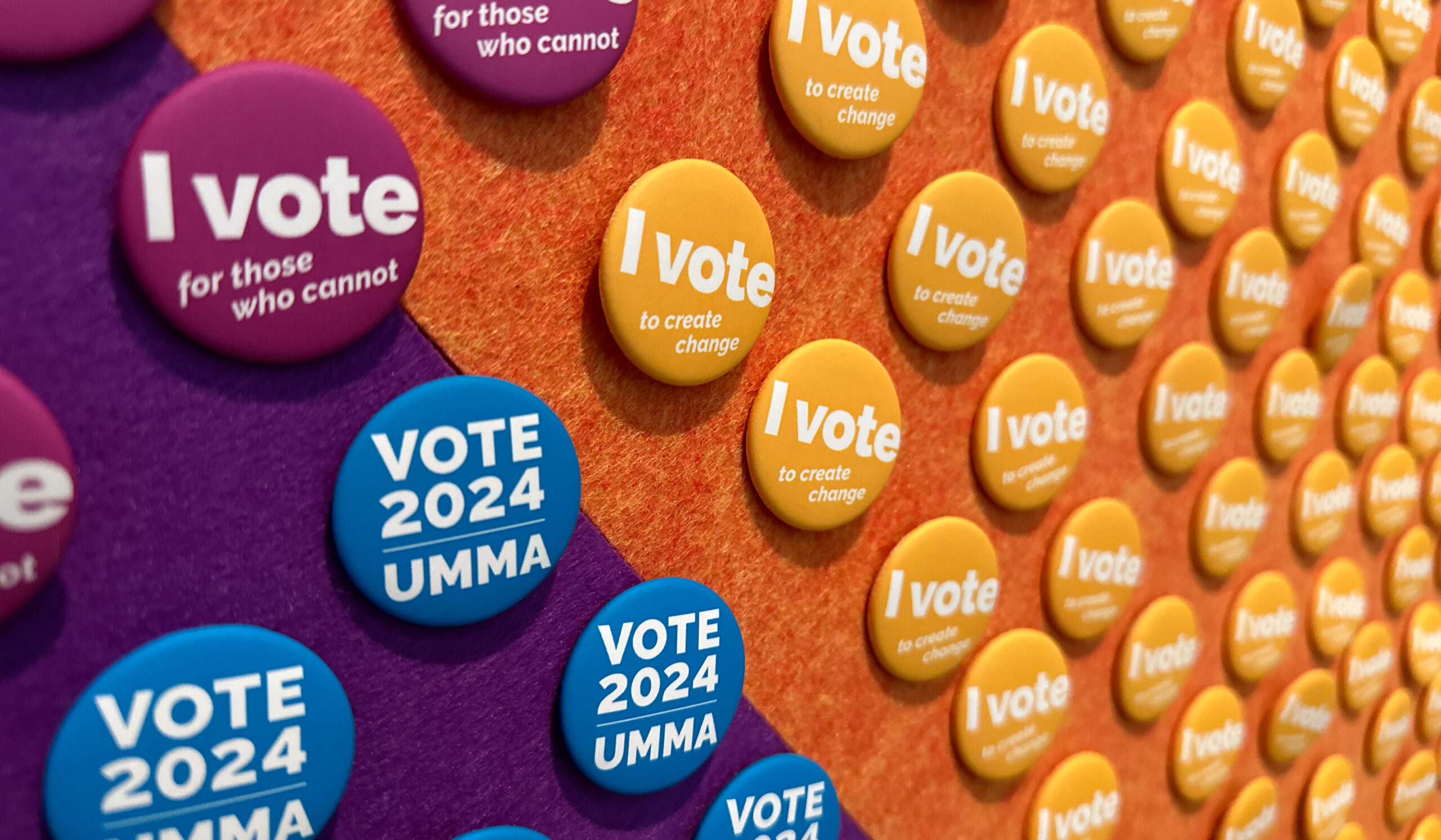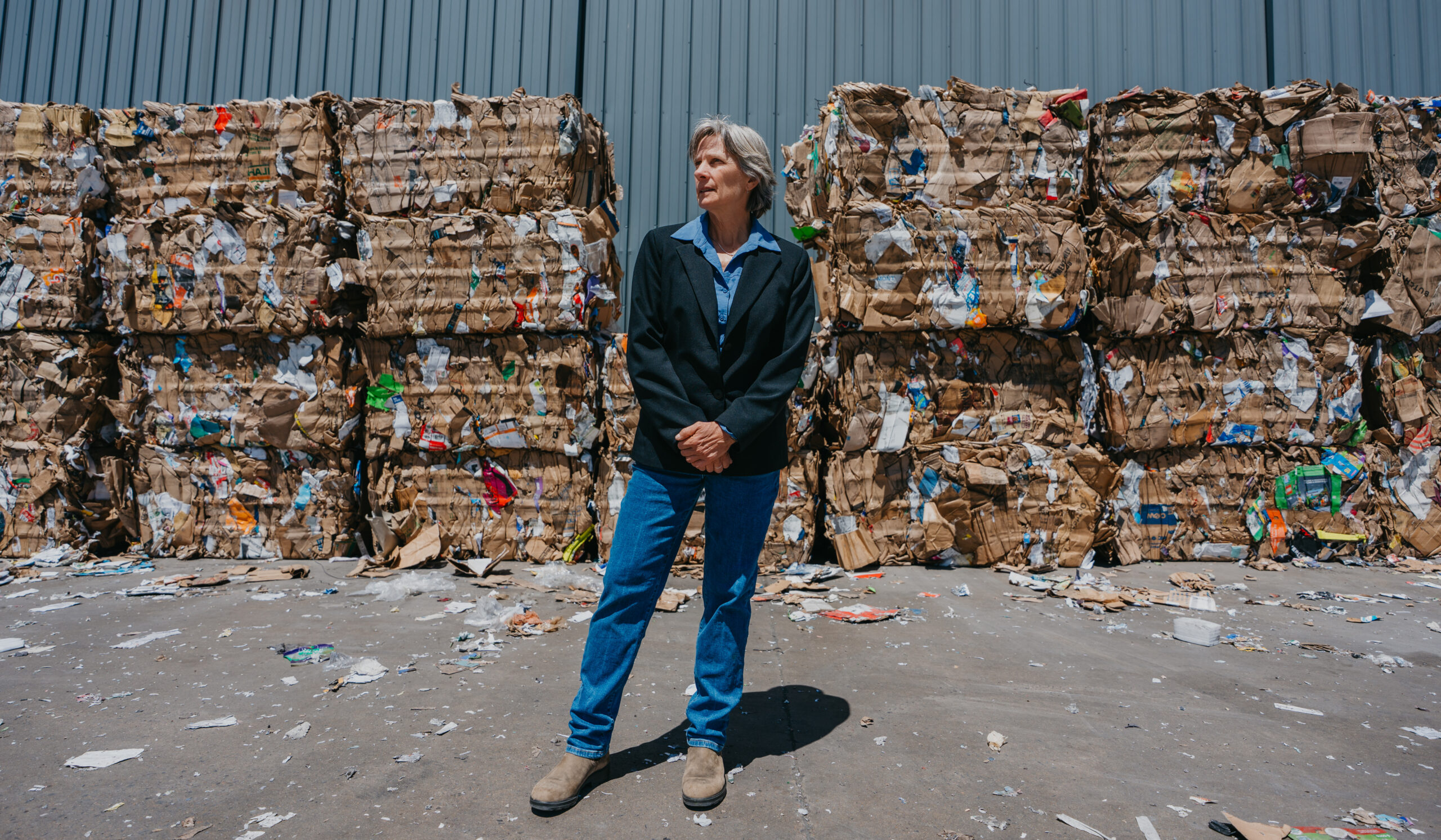Grace Hsia, ’12, MENT’13, still remembers the exact moment on May 31, 2013, when she first saw a photo of a baby wrapped in one of the nonelectric heating blankets she had created. “It was sent to me by a doctor near the completion of our clinical trials in Bangalore, India,” explains Hsia (pronounced “Shaw”), adding that the hospital testing the blanket also told her they had seen no morbidity or mortality with its use.
“I cried and felt an unbelievable wave of emotions best described as joyous disbelief,” the 28-year old entrepreneur recalls. “It felt surreal to see something that had been in my hands just several months before now serving these infants.”
Since then, Hsia has seen countless images of babies cuddled up in her IncuBlanket. Produced by Warmilu, the heat technology company she founded in March 2012, the IncuBlanket is best described as Hsia’s baby. She has nurtured it since she was a student at U-M. The company manufactures the blankets using a patented, reusable heating pack, called an InstaWarmer. The goal is to reduce deaths from hypothermia, a condition that kills 140 infants in developing countries every hour.
“It represents a vision for engineering that can positively impact lives,” she says.
 Hsia is a U-M tech-startup success story. “I would not have been able to create Warmilu without U-M,” she says, recalling the moment she learned in a class during her senior year that infants often die from a dangerous drop in body temperature. “That could have been me if I were born in a resource-scarce hospital,” says Hsia, who was born prematurely.
Hsia is a U-M tech-startup success story. “I would not have been able to create Warmilu without U-M,” she says, recalling the moment she learned in a class during her senior year that infants often die from a dangerous drop in body temperature. “That could have been me if I were born in a resource-scarce hospital,” says Hsia, who was born prematurely.
Soon after, she became intent on creating a technological solution that was affordable, portable, and accessible for hospitals in developing countries. By the spring of 2012, she and five other students had created the prototype, helped along by TechArb, a student venture accelerator that focuses on early-stage development and provided them with a $10,000 grant. It was Hsia’s engineering professor and mentor at the time, Jason Daida, who named the company, short for “Warm, I love you.” He saw the warmth within the blankets as a “physical embodiment of love.” Though Daida died of pancreatic cancer in 2013, the moniker has become a testament to him and the social good that can come from combining engineering and entrepreneurship.
After earning her undergraduate degree at U-M, Hsia entered a joint engineering-business master’s program in entrepreneurship, devoting all her studies to developing the company. (Her fellow Warmilu developers went on to pursue other careers.) Ann Arbor SPARK, which assists early-stage tech companies, was the next accelerator to come through for Hsia. Bill Mayer, SPARK’s vice president of entrepreneurial services, says the organization is particularly attracted to U-M students, like Hsia, who are truly committed to their companies. Mayer, in turn, helped Hsia by suggesting she expand the market beyond developing countries and consider more reliable and sustainable revenue sources. Now, the InstaWarmers are also being used in outdoor seat cushions for hunters, ice fisherman, and stadium attendees.
After graduate school, Hsia juggled Warmilu with a full-time job at U-M’s Michigan Economic Growth Institute. And in October 2016, she finally took the plunge and made Warmilu her only job. Now the CEO, she works alongside four other full-time employees. Last year, the company raised $220,000 in accelerator and pre-seed funding to add to $112,450 in grants. That included $50,000 from U-M’s Desai Accelerator, a collaborative effort between the Zell Lurie Institute, within the Ross School of Business, and the Center for Entrepreneurship in Michigan Engineering. Desai provides early-stage, tech-enabled startups with the resources they need to become externally fundable.
To that end, Warmilu is now distributing in India, Kenya, Uganda, Tanzania, and Pakistan as well as 10 states in the U.S. Last year, it was among eight finalists out of 152 entrants in the WeWork Global Creator Awards. Most recently, Hsia was named to the 2018 list of Crain Detroit’s Notable Women in Manufacturing as well as Crain’s Twenty in their 20s list.
If the company were to fail, she says, she would pursue a project management position or, in the worst case, drive for Uber. For the moment, however, she is optimistic. Last year, Warmilu sold 255 warming packs; 234 were for IncuBlankets. She hopes to sell 1,000 and in the next five years to help over 1 million infants. To reach that number, she is now working with Doctors Without Borders and is in talks with several health care companies. A corporate investor has also shown interest: the quintessential reward for a startup.
Whatever happens, Hsia receives immense satisfaction in how she is using her material science engineering degree. “I could float an entire month from one photo of an infant whose life has been saved by our blankets.”
Julie Halpert, ’84, is a freelance journalist for publications including The Wall Street Journal, The Atlantic, CNBC, and Family Circle. She also teaches journalism in U-M’s Program in the Environment.





